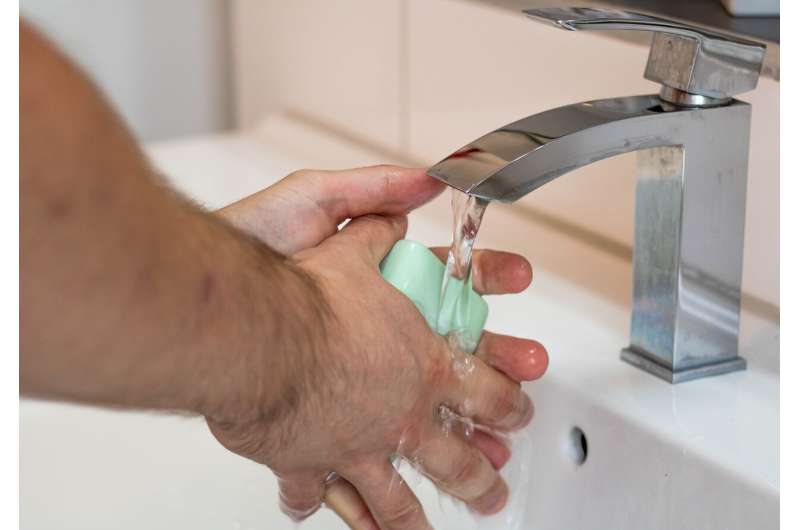Study shows behavior modification crucial to stop COVID-19

One of the longest-running studies examining COVID-prevention behaviors shows hygiene changes have been sustained but not complex changes, like social distancing, with important policy implications.
A longitudinal survey from just after the first lockdown in Australia in 2020 shows people have maintained simple hygiene measures in response to the pandemic but reduced their physical distancing over time, indicating that lockdowns may be required to stop outbreaks.
The study by University of Sydney researchers in the School of Public Health and Sydney Health Literacy Lab, Faculty of Medicine and Health, found people who tended to keep up distancing behaviors were more concerned about the pandemic, had stronger feelings of responsibility towards their community, and felt more confident about their ability to keep up the behaviors.
It found behavioral fatigue alone cannot be blamed for waning distancing, noting that the way COVID-19 behaviors change depends on how readily these behaviors can be shaped into habits, how difficult it is to navigate these behaviors in different social and physical environments, and how concerned people feel about the pandemic.
"Behaviors that compete with social interaction, like distancing behaviors, are particularly challenging to maintain over time," said Dr. Julie Ayre, the lead author.
The findings publish today in the leading journal PLOS ONE.
Dr. Julie Ayre said the findings support the argument for localized lockdowns to manage outbreaks in Australia. "For serious outbreaks, governments must act swiftly, given that distancing behaviors have shown to decrease over time—sometimes even in periods when there is a higher number of cases," she said.
The senior author Dr. Carissa Bonner said at a minimum, clear messaging was crucial. "The more complex behaviors like social distancing will not be maintained voluntarily without clear instructions from government," Dr. Bonner said.
"If we are looking to lift restrictions while cases are still circulating, that needs to be done on the assumption that people will find it hard to social distance unless they are clearly told what they have to do."
About the study
University of Sydney researchers conducted an Australia-wide survey of adults in Australia in April 2020, with monthly follow-up over four months. Participants had to be able to read and understand English and recruitment was via social media.
The analysis identified two behavior types: 'distancing' (e.g., staying 1.5m away) and 'hygiene' (e.g., washing hands).
So far, longitudinal research on COVID-19 behaviors has used relatively short follow-up periods (one week), and there has been mixed evidence that risk perception, social and moral norms, and belief in the behavior's utility contribute to distancing behavior—so this study plugs a significant research gap. Limitations of the study include the self-reported nature of the data, and the fact that participants were recruited through social media, resulting in a higher proportion of respondents who are female, from NSW, younger and more educated.
The study found perceptions of risk and safety for the community trumped concern for oneself as a key driver of behavior. This supports behavioral scientists' call for messaging that promotes pro-social behavior, and is consistent with other research into vaccine acceptability. The researchers stress that distancing behaviors are complex, and that there could be a need for different approaches depending on the audience and action required.
Dr. Bonner said unclear information in recent public health orders has not helped with adherence: "The use of subjective terms by officials, for example saying to use 'common sense' to interpret the complex health orders recently has been unhelpful and confusing."
The researchers note cultural factors are important to investigate, and are recruiting a survey sample across 10 language groups in Greater Western Sydney; details will be uploaded soon at healthliteracyhub.org.au.
More information: Julie Ayre et al, Contextualising COVID-19 prevention behaviour over time in Australia: Patterns and long-term predictors from April to July 2020 in an online social media sample, PLOS ONE (2021). DOI: 10.1371/journal.pone.0253930



















